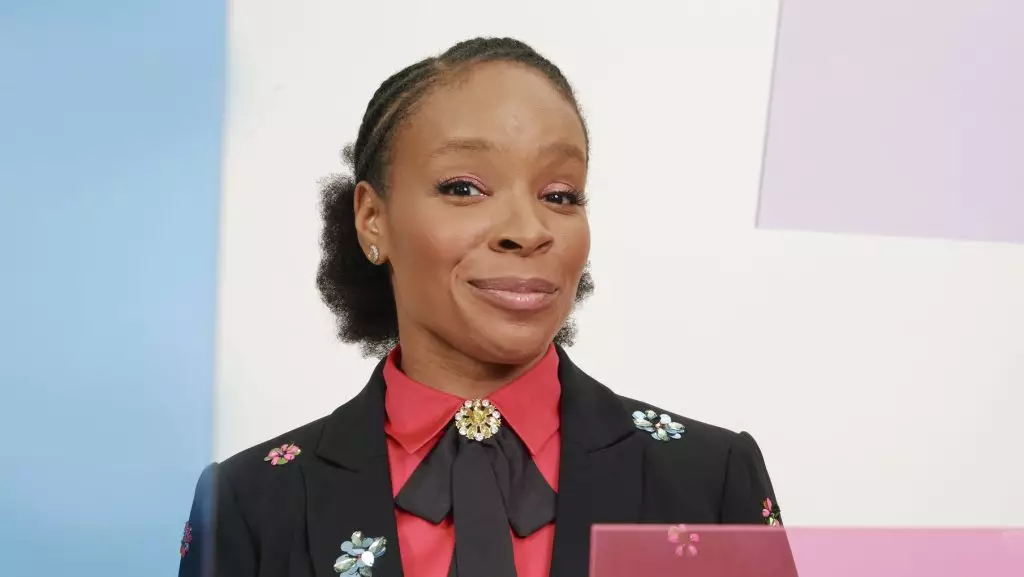The White House Correspondents’ Association (WHCA), a formidable institution known for its vibrant dinners featuring comedic stars, is undertaking a significant transformation this year. The decision to exclude a comedian from the April 26 dinner—once set to showcase Amber Ruffin—speaks volumes about the current political landscape in America. President Eugene Daniels has expressed a desire to prioritize journalistic excellence and mentorship over humor, citing the pressing need to focus on the “foundational American value of a free and independent press.” This shift not only reflects the concerns of the organization but also resonates deeply with the tumultuous relationship between media and politics in contemporary America.
The Climate of Division
The gravity of Daniels’ claim about not wanting to concentrate on “the politics of division” is underscored by the contentious atmosphere surrounding the event. Controversial figures in the current administration, including Donald Trump, have historically found the WHCA dinner to be a platform for comic jabs and satirical critiques. With Trump’s critics revving up their rhetoric through comedians like Ruffin, who is unapologetically vocal about her disdain for the administration, it is hardly surprising that his camp would object to her presence. The decision to avoid light-hearted performances aims to distance the event from this bitter divide, instead shining a spotlight on the journalists themselves—their achievements and the challenges they face in an increasingly polarized environment.
A Fragile Relationship between Comedy and Journalism
Ruffin’s involvement was a particularly explosive topic considering her remarks on the political scene. Her comment that “we are still acting like things are normal” encapsulates the frustration felt throughout the media landscape. By eschewing comedy this year, the WHCA is attempting to reclaim the narrative, focusing on the resilience and vital capabilities of the journalists themselves—individuals who have become the bulwarks of truth amidst chaotic misinformation campaigns. However, this comes at the risk of dulling a historically vibrant event that engaged the nation with humor.
The underlying question remains: can uproarious laughter coexist with earnest journalism? While humor has always been used as a vehicle for critique, especially in political settings, the WHCA’s renunciation of a comedic act raises alarm bells about the future of satire in journalism. By sidelining comedy, the association may inadvertently stifle a crucial avenue for addressing societal and political discrepancies that the American public so critically needs.
The Impact of Significance and Timing
Eugene Daniels’ assertion that this year’s dinner will reflect the momentous occasion for journalism echoes a larger sentiment that reverberates throughout the media community: the urgency of protecting press freedoms. In light of past conflicts between the Trump administration and various news organizations—including the Associated Press’ scuffle over access to the Oval Office—this year becomes emblematic of the WHCA’s efforts to stand firm against external pressures. But with this heightened seriousness, it’s essential to interrogate whether avoidance of comedy is a necessary adaptation or a concession that marginalizes the broader societal context.
Moreover, it is expected that Trump’s absence from the dinner isn’t just a side note, but an element that may shape the evening’s undertones. His decision to skip the event and organize a competing spectacle underscores the ongoing battle for audience perception and loyalty within media circles. The WHCA’s objective of putting journalistic integrity forward might not resonate with all, especially amid a backdrop of splintered political adherence.
A Glimpse of the Future
The WHCA’s iconic annual dinner has traditionally attracted elite members of journalism, politics, and celebrity culture, uniting them in a shared celebration of free speech. By pivoting from laughter to recognition this year, the association aims to redefine its purpose and initiate fresh conversations surrounding journalistic values. Daniels’ commitment to honoring excellence in reporting is notable, yet it asks a pivotal question: Will a serious approach alienate the vibrant energy that has historically characterized this gala?
As the dinner approaches, intrigue surrounds what “celebrating journalistic excellence” will entail. The WHCA’s appeal to the adherence of core journalistic values might signal a new chapter, where the focus on accolades might overshadow the joviality that served as a release from the often-grueling work of news reporting. In an era where media integrity is threatened, how the WHCA navigates this intricate balance remains to be seen. The potential success of this new format could change the trajectory of the event and the role of comedy in political discourse, leading journalists, entertainers, and the public into uncharted territory.

